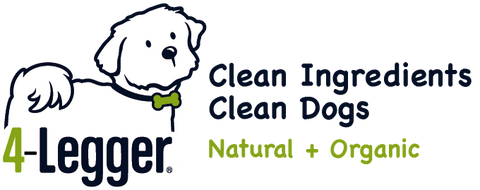Is the Preservative in My Dog Shampoo Killing All the Bacteria in Their Skin Microbiome?
In the quest for a clean, fresh-smelling pup, many dog shampoos use preservatives to extend shelf life and prevent microbial contamination.
But could these preservatives be doing more harm than good - especially when it comes to your dog's skin microbiome?
The answer is often yes.
Many common preservatives, including those found in "probiotic" dog shampoos, can indiscriminately kill both harmful and beneficial bacteria.
Let's explore how preservatives affect the delicate balance of bacteria on your dog's skin and why probiotic shampoos with preservatives may be counterproductive.
Understanding the Dog's Skin Microbiome
Just like humans, dogs have a diverse ecosystem of bacteria, fungi, and other microorganisms living on their skin.
This microbiome plays a crucial role in:
- Protecting against harmful pathogens
- Supporting a healthy immune system
- Reducing inflammation and allergies
- Maintaining proper skin hydration and function
A well-balanced microbiome helps keep skin conditions like yeast infections, itchiness, and excessive dryness at bay. But when this balance is disrupted-by diet, environment, or harsh grooming products - problems arise.
How Shampoo Preservatives Affect the Skin Microbiome
Most dog shampoos contain preservatives to prevent bacteria and mold growth in the bottle. While this is necessary for product safety, the issue lies in the type of preservative used. Many preservatives have broad-spectrum antimicrobial effects, meaning they kill both good and bad bacteria on contact.
Common preservatives found in dog shampoos that can disrupt the microbiome include:
- Parabens (methylparaben, propylparaben, etc.) - These synthetic preservatives have been linked to endocrine disruption and microbiome imbalance.
- Phenoxyethanol - Known for its antimicrobial properties, it can kill beneficial bacteria along with harmful ones.
- Benzyl Alcohol - A common preservative that can be harsh on the skin and disrupt bacterial communities.
- Sodium Benzoate & Potassium Sorbate - Though these can be generally considered safer, they can still impact microbial diversity and depending on the combination with other ingredients used (particularly citric acid) can actually become NOT safe having formed links to cancer.
- Chlorhexidine & Triclosan - Extremely potent antimicrobial agents that wipe out beneficial bacteria, leaving the skin defenseless.
When these preservatives wash over your dog's skin, they can strip away beneficial bacteria that help maintain a healthy skin barrier. Over time, this can lead to:
- Increased susceptibility to infections
- Overgrowth of yeast and harmful bacteria
- Chronic itchiness and irritation
- Worsening of conditions like allergies and dermatitis
The Problem with "Probiotic" Dog Shampoos
Some dog shampoos now claim to contain probiotics, boasting benefits for the skin microbiome. However, many of these products also contain preservatives that kill all bacteria on contact - including any probiotics they may contain!
True probiotics are living microorganisms. But in a shampoo with preservatives, those probiotics are likely dead before they are ever purchased off the shelf, much less used in a bath on your dog. This makes the probiotic claims misleading at best.
Additionally, even if live probiotics were somehow added to a shampoo and survived the preservative, they would be rinsed away immediately, offering no lasting benefit. The best way to support your dog's microbiome is not through probiotic shampoo but by avoiding harsh preservatives in the first place.
Higher Standard of Safety in True Organic Dog Shampoo
True organic dog shampoos use rosemary extract not just for its fresh, natural scent - but for its powerful antioxidant and antimicrobial properties. Rich in plant oils, rosemary extract helps protect the product and your dog's skin by naturally preventing the growth of bacteria and fungi without synthetic preservatives.
When formulated properly, organic shampoos with rosemary extract maintain their integrity and effectiveness for up to three years, offering a safe, clean wash you can trust.
How to Choose a Microbiome-Friendly Dog Shampoo
To protect your dog's skin microbiome, look for shampoos that:
✅ Use food-grade natural preservatives like rosemary extract or vitamin E (tocopherol)
✅ Contain minimally processed, organic plant-based ingredients that are gentle and nourishing
✅ Avoid harsh antimicrobial agents that indiscriminately kill bacteria
Bottom Line: Preserving Your Dog's Microbiome the Right Way
While preservatives are necessary to prevent contamination in liquid shampoos, many popular commercial options contain ingredients that disrupt the delicate balance of your dog's skin microbiome.
This can lead to chronic skin issues, infections, and irritation. Ironically, some "probiotic" dog shampoos still contain preservatives that wipe out beneficial bacteria, making their probiotic claims ineffective and invalid.
The best way to support your dog's skin health is to choose gentle, microbiome-friendly grooming products that preserve beneficial bacteria rather than destroy them, like 4-Legger. By understanding what's really in your dog's shampoo, you can make more informed choices that promote long-term skin and coat health.
References
- Rodrigues Hoffmann, A. (2017). "The canine skin microbiome: A new frontier in veterinary dermatology." Veterinary Dermatology, 28(1), 60-e15.
- Baldwin, C., & Hughes, D. (2020). "Preservative use in pet grooming products: Implications for skin microbiome health." Journal of Veterinary Dermatology, 31(2), 105-112.
- O'Neill, S., et al. (2021). "The effects of antimicrobial shampoo ingredients on the canine microbiome." Veterinary Microbiology, 257, 109074.
- Yu, J., & Pei, L. (2023). "The rise of probiotic skincare: Efficacy and challenges in pet grooming formulations." Microbiome Research Journal, 5(3), 45-58.





